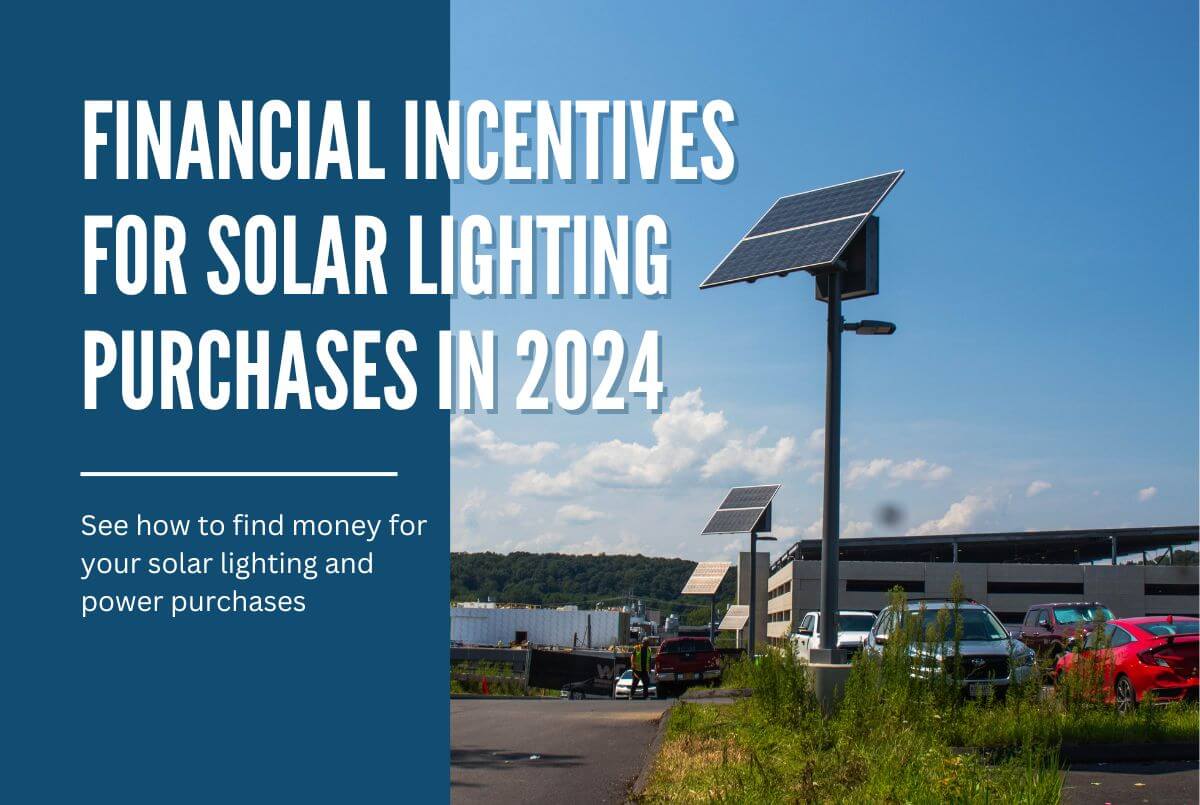As we enter 2024, the landscape for solar energy has become increasingly favorable, thanks to a variety of financial incentives. These incentives make solar systems more affordable and encourage a shift towards cleaner energy. And solar lighting systems can also qualify for many of these incentives. Let's take a deeper look at what's available.
The Federal Solar Tax Credit
A key incentive for businesses is the Business Investment Tax Credit (ITC), distinct from the residential solar tax credit. This credit allows businesses to deduct a significant percentage of their solar purchase and installation costs from their federal taxes. The Business ITC is designed to incentivize commercial entities to invest in solar energy, thereby reducing their operational costs and contributing to environmental sustainability.
This contrasts with the residential solar tax credit aimed at individual homeowners. Both incentives significantly reduce the upfront costs associated with solar installations. Homeowners can deduct up to 30% of the cost of installing a solar system from their federal taxes. This investment tax credit (ITC), boosted by the Inflation Reduction Act under the Biden administration, is a powerful tool for reducing the upfront costs associated with solar installations.
State-Specific Incentives
In addition to the federal tax credit, various states offer their own incentives. These can include additional tax credits, rebates, and grants, strengthening the financial case for solar. For example, some states offer tax credits ranging from $500 to $5,000, depending on the cost of the solar system installed.
For example, Florida has a number of incentives available for solar purchases. Not all incentives are for businesses or residential installations, so you need to do your research. DSIRE has each state listed on its site, along with federal and territorial incentives.
Another great place to look for incentives for your solar lighting system purchases is the local utility company. Our local utility, Florida Power and Light, provides a rebate for energy-efficient lighting for interior lighting; however, there is also their SolarTogether program for residential and commercial.
Net Metering and SRECs
Net metering is another beneficial program where excess electricity generated by your solar panels is fed back into the grid, earning you credits on your utility bill. This not only reduces your bill but also maximizes the use of solar energy produced. Moreover, some states offer Solar Renewable Energy Credits (SRECs), which are tradable credits that can provide additional income for solar energy producers.
Off-grid solar lighting systems don't benefit from net metering or SRECs; however, with the additional savings provided by these incentives, the extra savings can be used to purchase these types of systems. The more solar that is utilized by a business, the lower the overhead costs and the more green a company becomes.
Environmental and Long-Term Financial Benefits
The push for solar energy is not just financially motivated. Solar panels significantly reduce carbon footprints and reliance on nonrenewable energy sources. With increasing efficiency and decreasing costs of solar technologies, the long-term benefits are both environmental and financial.
The year 2024 offers an opportune moment for you to invest in solar energy. With various federal, state, and local incentives available, the initial costs of installing solar lighting or power systems are significantly offset, paving the way for long-term savings and environmental benefits. Whether through tax credits, rebates, or net metering, the financial advantages of going solar have never been more compelling.


